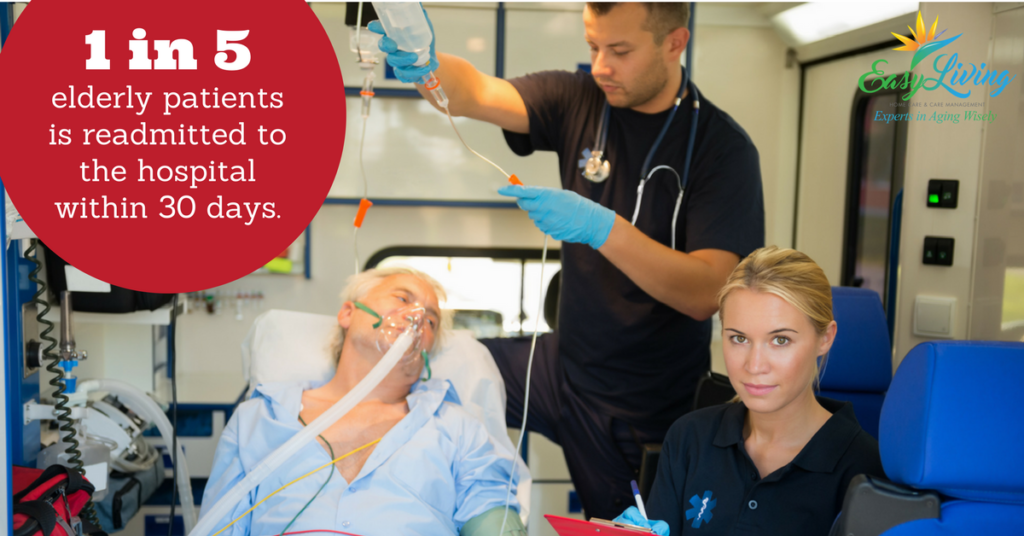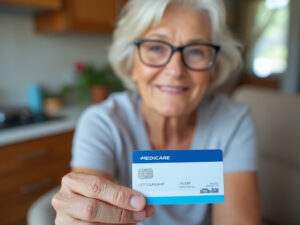Home Care Services Reduce Hospital Readmission Rates
One in five elderly patients is readmitted to the hospital within a month. Studies estimate that hospital readmission is avoidable in up to 75% of cases. All this costs Medicare a lot of money, but more important is the impact it has on you and your family. No one wants to land back in the hospital. And, a hospital readmission may be the beginning of a downward spiral in your health and independence.
Home care is one of the best weapons to combat the risk of hospital readmission. According to an Avalere Health study, home healthcare for chronically ill patients resulted in more than 20,000 fewer hospital readmissions.
We’ll share the specific problem areas where home care helps. Therefore, we hope you’ll more seriously consider preventative measures. A lot of clients and families hold misperceptions about hospital discharge and aftercare. They can’t imagine the challenges that await in the days and weeks after a hospitalization. You’re happy to be going home. So, take steps to avoid ending up right back at the ER.
Home care addresses these vital areas to prevent hospital readmission:
Medication management
Studies show adverse drug events cause 30% of hospital readmissions for elderly patients. More than half of adverse drug events involve dosing, and therefore could be preventable.
The doctors have usually prescribed new medications upon hospital discharge. First, the patient needs to get those medications. Second, he/she needs to understand the new instructions. Third, the patient has to take the pills properly (both new medication and removing old pills).
A home care provider can help with all three steps. They can arrange medication pickup or delivery. Then, they can set up your new medications and refill the pillbox properly. If you’re unclear about discharge instructions, the home care provider can get answers. Above all, when you may be tired and confused, the caregiver can ensure you take the proper pills at the right time.
Falls prevention
Another major risk for hospital readmission is falling in the home. Patients may be weak or dizzy after being hospitalized. NIH has concluded there is “a high incidence of falls after hospital discharge”, even higher if a patient fell during their hospital stay.
Every patient leaving the hospital should have an emergency response system in case they fall. However, having home care safety support is even more important in preventing falls. The caregiver can rearrange the environment to reduce safety hazards. He/she helps the client with getting up and down from the chair and bed, taking baths, and more. Without the right support, these tasks often result in falls. This can happen even when family caregivers help since they’re likely not trained in safe transfer techniques.
Monitoring condition indicators
Depending on the patient’s condition, monitoring certain indicators will be key to spotting problems. These could include blood pressure, weight, temperature or condition-specific warning signs. Early intervention can prevent hospital readmission almost every time.
A life or death example: Sudden weight gain can mean fluid’s building up, a potential warning sign for a heart patient. The caregiver monitors weight according to the care plan and reports any changes. The doctor can react swiftly before it becomes dangerous or deadly.
Proper nutrition and hydration
You get home from the hospital at 4:00 on a Friday. The food left in your fridge is mostly expired. You have a few frozen meals and some snacks. Who’s going to grocery shop? How will you prepare the nutritious food you need to recover?
A home caregiver can clear out your fridge/pantry and stock it with fresh food for your arrival. She can cook nutritious meals that fit your dietary requirements. You may need a special diet per your doctor’s instructions. Some patients feel a bit nauseated or need easily digested foods. A home caregiver will make sure you have exactly what you need. Besides keeping you healthy, the caregiver can make foods the way you like. This certainly makes recuperation a lot more pleasant.
Older patients commonly become dehydrated. And, this can be worse after a hospital stay or with some meds. The caregiver will make sure you’re getting enough liquids. They can also monitor for signs of dehydration, a frequent cause of hospital readmission.
Follow up/coordination
Medical studies suggest that patients who followed up with their physician within seven days of discharge were less likely to have a hospital readmission. Who’s going to keep you on track with follow up? How will you get to appointments?
Here’s another area where home care can help. EasyLiving’s custom care plan outlines important tasks like follow up appointments, exercises, and treatments. Your caregiver can get you to and from appointments safely and track how you’re doing.
Another aspect of home care that can significantly reduce hospital readmission risk is care management. The care manager can assess your home environment and support needs. She can coordinate care, so you get the best results. Discharge planning is about more than a written plan of instructions. Care managers are uniquely suited to coordinate care across disciplines and settings.
Want to stay safe?
EasyLiving’s Transition of Care package keeps you safe and comfortable at home after leaving the hospital. Call us at 727-447-5845 for immediate assistance.







